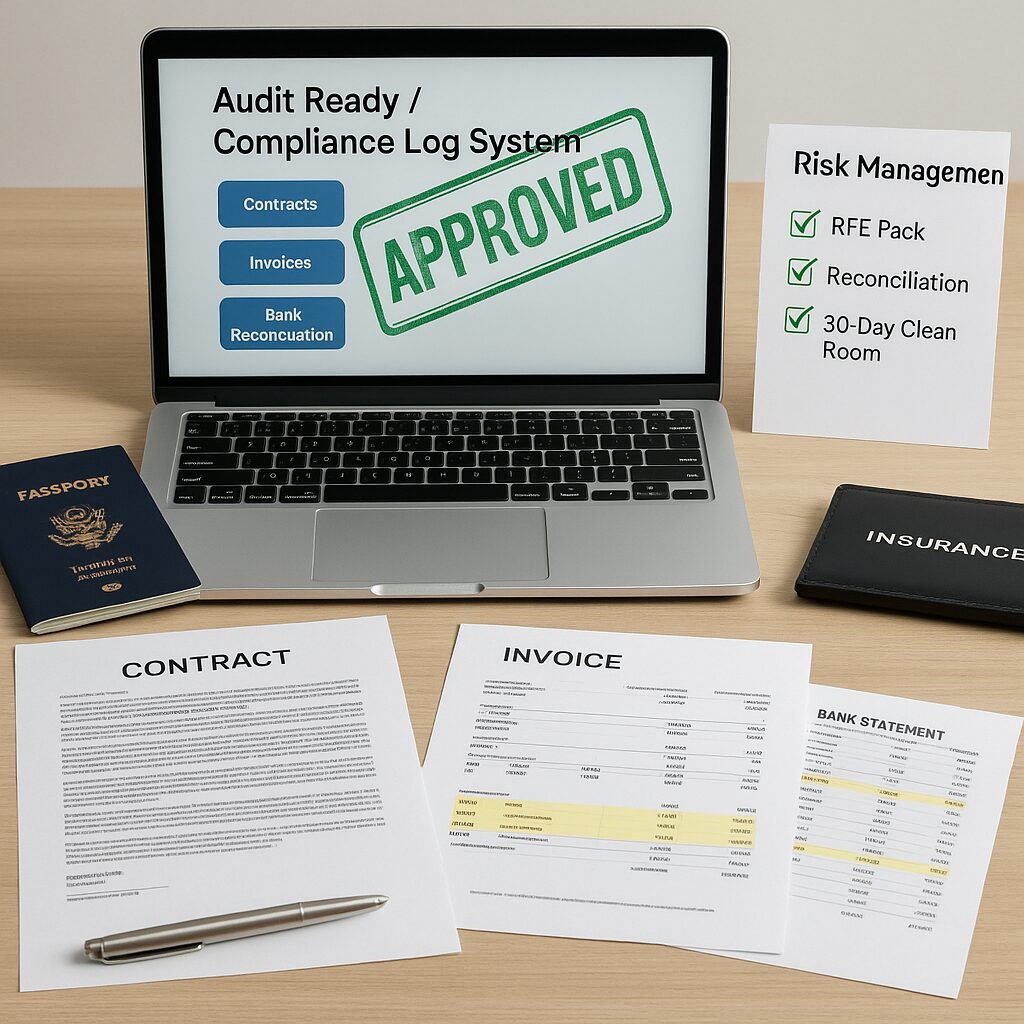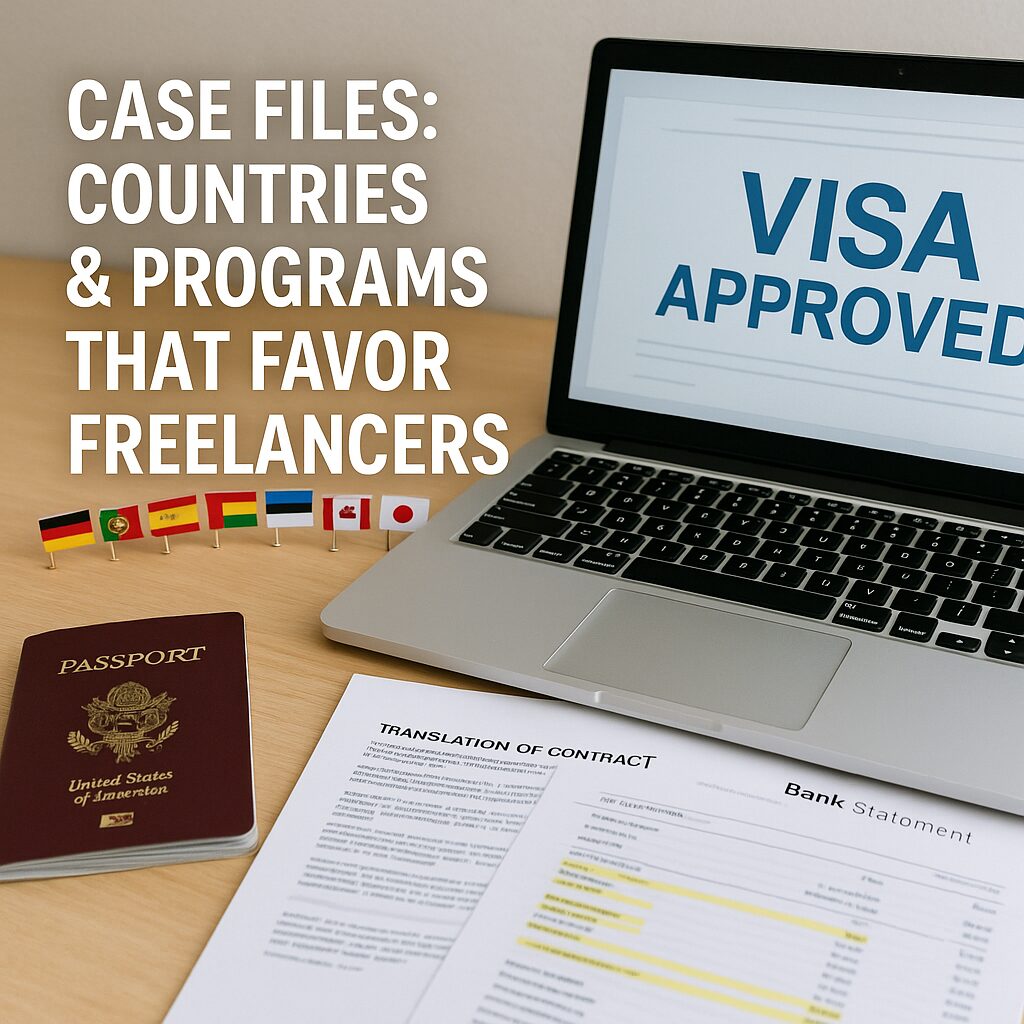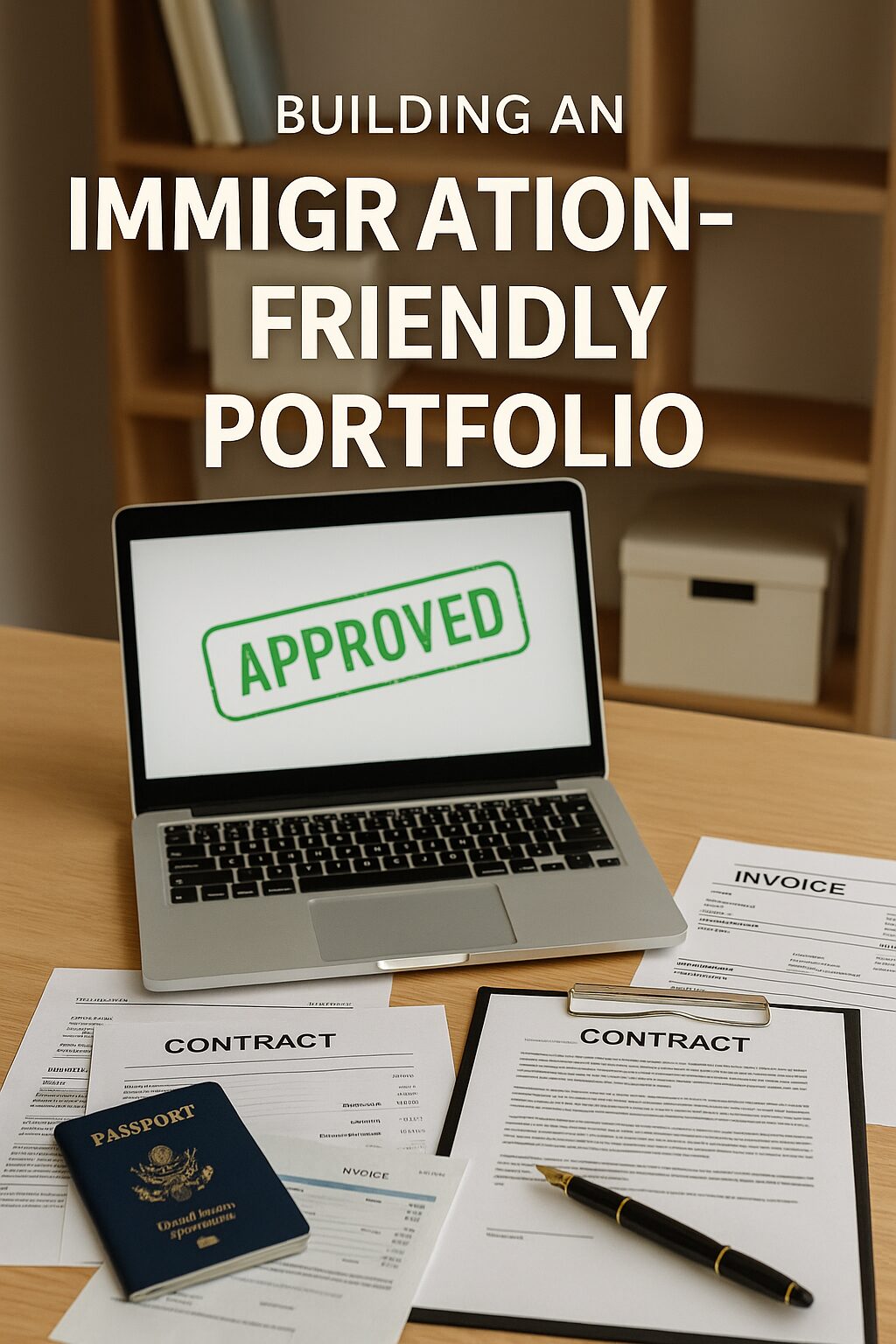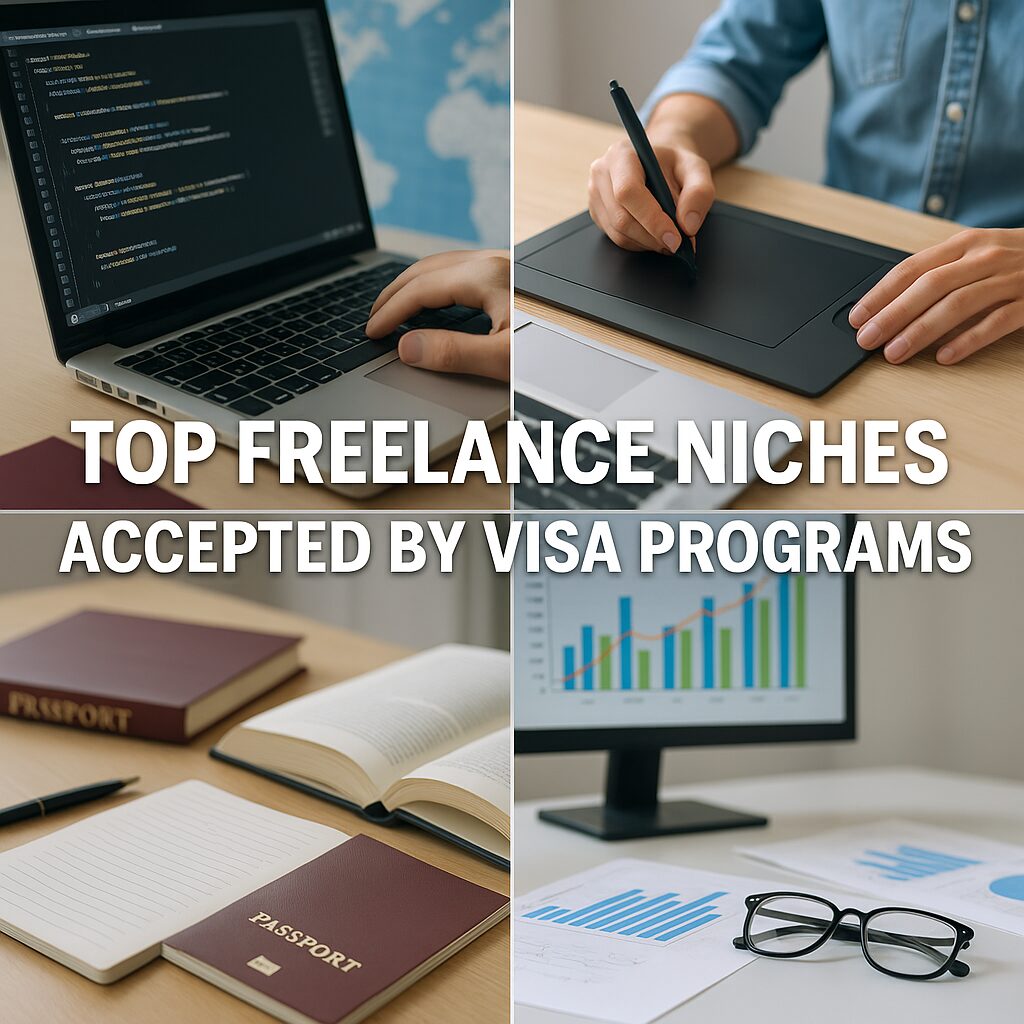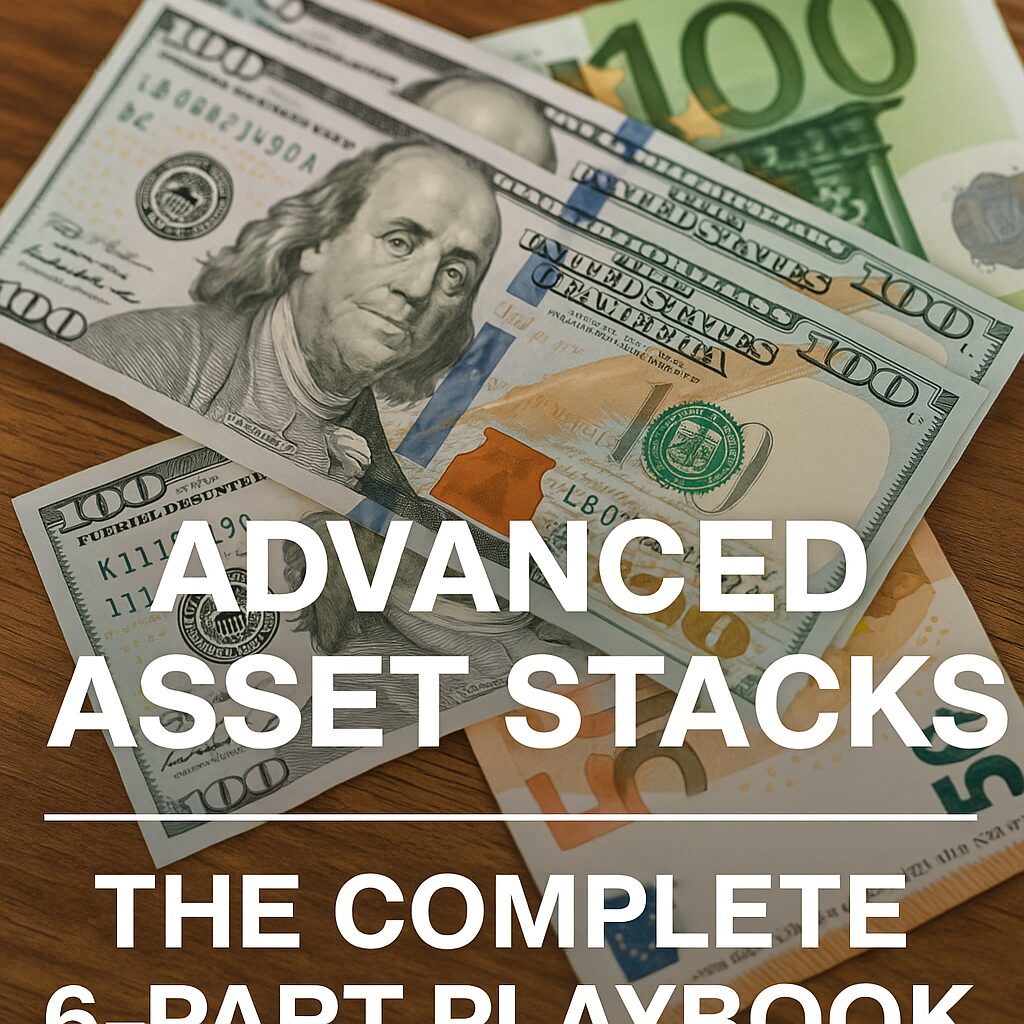The Rich Don’t Wing It — They Document It
Freelance visas, bank accounts, payment processors, and enterprise clients all evaluate the same thing: risk. They don’t truly “trust” you; they trust your proof. A world-class designer with poor records loses to a mid-tier consultant who can produce contracts, invoices, bank trails, and tax confirmations in minutes.
This article builds your Compliance Log System (CLS) — a lightweight, audit-ready operating system that keeps you safe across borders and makes approvals routine. You’ll learn exactly what to track, how to structure registers and folders, how to reconcile money flows, and how to prepare pre-built evidence packs for renewals, bank reviews, and client diligence.
Mindset: Don’t scramble when someone asks for proof. Ship proof every week so when audits arrive, you export a PDF and move on.
1) What Auditors Actually Look For (and Why)
Different reviewers, same questions:
- Immigration officers: Is your work remote and exportable? Is income continuous and documented? Do documents match each other?
- Banks / PSPs (KYC/AML): Are funds legitimate? Do invoices match deposits? Is there a clear source-of-funds narrative?
- Tax authorities: Do declared revenues and expenses align with bank flows? Are you respecting residency and treaty filings?
- Enterprise clients (vendor diligence): Are you compliant enough to pay? Can you pass their onboarding without risk flags?
They all grade coherence: Contract → Invoice → Payment → Ledger → Tax. If the chain is unbroken and labeled, you pass.
2) The Compliance Log System (CLS): What to Track, How Often, Where
Build a single pane of glass for your entire proof trail.
2.1 Core Logs (update weekly)
- Contract Register — every signed contract, SOW, extension.
- Invoice Ledger — sequential invoices with status (issued/paid/overdue).
- Payment Reconciliation — bank/processor deposits mapped to invoices.
- Tax Register — filings, receipts, accountant letters, residency notes.
- Travel & Days Tracker — physical presence by day (visa/tax residency).
- Permit & Insurance Vault — visa cards, health insurance, policy PDFs.
- Communication Log — key client/authority correspondence (summaries + links).
2.2 Folder Structure (top-level)
/Portfolio_Immigration/
01_Contracts/
02_Invoices/
03_Bank_Payments/
04_Tax_Filings/
05_Permits_Insurance/
06_Client_Letters/
07_Travel_Days/
08_Compliance_Logs/ (registers as spreadsheets)
09_RFE_Packs/ (Response-For-Evidence prebuilt)
2.3 File-Naming Convention
YYYY-MM-DD_ClientName_DocType_Version.pdf
Examples: 2025-03-05_Acme_Contract_v2.pdf, 2025-06-01_Acme_Invoice_004.pdf.
2.4 Access & Retention
- Read-only for archives; edits happen in a working folder first.
- Keep 7 years of financial documents (or longer if your jurisdiction requires).
- Nightly cloud backup + monthly offline snapshot.
3) Audit-Ready Registers (Schemas You Can Copy)
3.1 Contract Register (columns)
Contract_ID(ACME-2025-SOW-01)Client_Legal_Name/Country/WebsiteService_Scope(deliverables)Currency/Rate/CeilingStart_Date/End_Date/Auto-Renew(Y/N)Remote_Statement(Y/N)Signature_Date/SignatoryTranslation?(language, file link)Status(Active, Extended, Closed)Evidence_Link(PDF in 01_Contracts)
Tip: Always include a line like “Services are delivered remotely to [client country]. No local employment or hiring.”
3.2 Invoice Ledger (columns)
Invoice_No(2025-004)Contract_ID(join)Issue_Date/Due_Date/Amount/CurrencyPayment_Method(SWIFT/Wise/Stripe/PayPal)Paid_Date/Deposit_Ref(bank line ID)Variance(0 if exact; else explanation)Evidence_Link(02_Invoices PDF)
3.3 Payment Reconciliation (columns)
Deposit_Ref(bank csv line id)Bank_AccountValue_Date/Amount/Currency/Payer_NameInvoice_No(join) /Contract_IDProcessor_Fee(if PSP)Notes(FX spread, split payments)Evidence_Link(03_Bank_Payments statement with highlight)
Workflow: For each invoice, paste the bank line screenshot with the amount/currency highlighted. Zero tolerance for mismatches.
3.4 Tax Register (columns)
Tax_Year/JurisdictionResidency_Basis(days/center of life etc.)Return_Filed_Date/Receipt_NoTax_Paid(Y/N) /Treaty_Claim(Y/N)Accountant_Letter_LinkEvidence_Link(04_Tax_Filings)
3.5 Travel & Days Tracker (columns)
Date/Country/Entry/Exit/PurposeCumulative_Days_By_Jurisdiction(auto calc)
Why: Avoid accidental tax residency or visa overstays; prove where you earned while living where.
4) The Cross-Border Evidence Map (CBEM)
Think of your documents as a graph:
Client → Contract → Invoice → Payment → Ledger → Tax → Residency/Permit
Map each edge with a link and keep a one-page diagram (CBEM_Overview.pdf). When an officer asks for proof, you export the node path as a single PDF bundle. This reduces back-and-forth and signals professional control.
Bonus nodes:
- Insurance (policy + paid receipt).
- Compliance Communications (emails confirming remote delivery, no local employment).
- Portfolio (deliverable samples, redacted if necessary).
5) Proof Lifecycle: Capture → Normalize → Verify → Archive → Surface
- Capture — contracts signed via e-signature; invoices generated from a template; bank statements downloaded monthly.
- Normalize — convert to PDF/A; add consistent file names; attach translations & apostilles when needed.
- Verify — check amounts, dates, currency codes; log variances in the ledger.
- Archive — move to
Portfolio_Immigrationstructure; set read-only. - Surface — produce RFE packs (Response-For-Evidence) per scenario: renewal, bank review, client onboarding, tax inquiry.
6) Risk Scenarios & the Pre-Emptive Proof Playbook
6.1 Visa Renewal (Economic Continuity Check)
Signals auditors watch: irregular inflows; unexplained income spikes; gaps >60 days.
Pre-emptive pack (10–15 pages):
- 1-page income summary by month (last 12 months).
- Three active contracts + last 6 invoices each.
- Bank highlights matching the invoices.
- Health insurance proof + travel days summary.
- Tax register excerpt (filed/receipts).
Turnaround target: under 48 hours.
6.2 Bank/PSP “Source of Funds” Review
Signals: new large payments; high-risk countries; frequent refunds.
Pre-emptive pack:
- Contract + invoice chain for the flagged deposit.
- Payment processor statement, fee details, and payout reference.
- Short Source-of-Funds Letter (template below).
Rule: never send a raw spreadsheet alone; include narrative + documents.
6.3 Double-Taxation or Residency Dispute
Signals: 183-day thresholds crossed; conflicting employer records.
Pre-emptive pack:
- Days tracker export; tickets/entry stamps.
- Treaty note in accountant letter; filing receipts.
- Bank flow summary by jurisdiction (where paid; where lived).
6.4 Permanent Establishment (PE) Risk
Signals: local sales contracts, local team, fixed place of business.
Mitigation: contracts specify remote delivery; no local hiring; use client-side infrastructure; document where servers/tools run if relevant.
6.5 Payment Processor Freezes / Chargeback Clusters
Mitigation pack:
- Scope-of-work acceptance emails; delivery proofs; dispute ledger.
- Updated terms (refund/chargeback clauses).
- Cohort-level stats showing issue is isolated and resolved.
6.6 Enterprise Client Vendor Diligence
Pack: insurance certificate, data protection policy, tax registration proof (if any), bank letter, top-3 case studies, W-8/W-9 equivalents where applicable.
7) The 30-Day Clean-Room Routine (Before You File or Renew)
Day 1–3 — Intake & Gap Scan
- Pull bank statements, processor reports, and invoice list for the past 12 months.
- Run a Variance Map (invoices vs. deposits). Fix or annotate every mismatch.
Day 4–7 — Contract Hygiene
- Ensure every active client has a signed contract/SOW with a remote delivery clause.
- Add missing annexes: scope lists, milestone tables, signature pages.
Day 8–10 — Translation & Apostille
- Translate contracts/invoices where required.
- Batch apostilles/notarizations (only for items the target jurisdiction typically asks).
Day 11–14 — Tax & Residency Alignment
- Confirm filings/receipts on record; add an Accountant Confirmation Letter.
- Export Days Tracker; verify 183/330 thresholds implications.
Day 15–18 — Insurance & Permits
- Renew or extend policy; export coverage period page + payment receipt.
- Scan visa/permit validity dates; calendar renewal reminders.
Day 19–22 — RFE Packs Assembly
- Build scenario-specific bundles (renewal, bank review, client diligence).
- Single PDF per bundle with bookmarks.
Day 23–26 — Evidence Map Check
- Update
CBEM_Overview.pdfwith latest links/IDs. - Dry-run: can a colleague find invoice #2025-004 and its bank line in <60 seconds?
Day 27–30 — QA & Freeze
- Senior pass (or your future self tomorrow) verifies numbering, dates, currency.
- Freeze the folder; generate a hash or checksum for integrity if needed.
8) Tooling Stack (Lean but “Audit-loud”)
- Accounting/Invoices: Xero, QuickBooks, or a structured spreadsheet with strict numbering.
- Banking/PSPs: Wise, Revolut, Stripe, PayPal — export CSV + PDF statements monthly.
- E-Signature: DocuSign, Adobe Sign, HelloSign (download the final PDFs).
- Docs & Backups: Google Drive/OneDrive + monthly offline snapshot (encrypted).
- Dashboards: simple spreadsheets with pivot tables beat black-box tools during audits.
- Automation: script monthly pulls of statements; auto-generate “Missing Evidence” task list.
9) Compliance Health KPIs (Measure What Prevents Pain)
- Reconciliation Gap Rate:
(unmatched deposits or invoices) / total— target 0%. - Invoice Aging >30d: should trend to low single digits.
- Documentation Freshness: % of active contracts with <12-month age.
- RFE Readiness SLA: time to export a renewal/bank pack — target <48h.
- Variance Closure SLA: average days to resolve a mismatch — target <7d.
10) Governance for Solo Operators (RASCI-Lite)
- Responsible: you, weekly entries.
- Accountable: you, monthly close (reconcile, export backups).
- Support (S/C): bookkeeper or accountant reviews quarterly; translator/notary on call.
- Informed: anchor clients (when needed) for letters of demand/confirmation.
Set a Monthly Close Day (e.g., the 3rd business day). Protect it like a client deadline.
11) Ready-to-Use Templates (Copy/Paste & Adapt)
11.1 Client Confirmation Letter (Remote Services)
To whom it may concern,
This letter confirms that [Your Name/Company] provides [service scope] to [Client Legal Name, Country] under contract [ID].
All services are delivered remotely from [your country/various locations] to [client country]. No local employment or in-country hiring is involved.
Period: [Start Date]–[End Date or Ongoing].
Signed: [Name, Title, Company, Date].
11.2 Accountant Confirmation Letter
We act as accountant/tax advisor to [Your Name]. Based on records provided, income from [dates] has been recorded and relevant filings [were made / are scheduled] in [jurisdiction].
This letter is provided to confirm compliance and may be presented to immigration, banking, or counterparties.
[Firm Name, Signature, Date].
11.3 Source-of-Funds Letter (Bank/PSP)
The deposit of [amount + currency] on [date] to [account] relates to Invoice #[no] under Contract [ID] with [client, country] for [scope].
Payment was processed via [Stripe/PayPal/Wire], reference [id]. Supporting documents are attached.
11.4 Invoice Skeleton (non-negotiables)
- Unique number, issue/due dates, legal names/addresses, scope line items, currency, bank/PSP details, “remote services delivered to [country]”, signature block or e-signature id.
Conclusion: Proof Is Your Profit Engine
The most profitable freelancers are not the loudest; they are the cleanest. With a Compliance Log System, Audit-Ready Registers, and pre-built RFE packs, you will renew visas faster, open and keep bank accounts, and pass enterprise vendor checks with zero drama. Proof turns skepticism into approvals and delays into compounding revenue.
Your goal is not to be “audit-proof.” Your goal is to be audit-ready by default.
📌 English Case List (realistic composites for reader intuition)
- Case: Visa Renewal in 48 Hours — Designer renewed by exporting a single pack: contract + 6 invoices + bank highlights + days tracker.
- Case: Bank Review Cleared — Consultant unfroze payouts by sending a two-page Source-of-Funds letter with linked evidence.
- Case: Tax Residency Dispute Avoided — Developer presented days tracker + accountant letter referencing treaty provisions.
- Case: Client Diligence Win — Fintech writer closed a $8k/mo retainer after sharing a vendor pack: insurance, tax receipts, data policy.
- Case: PE Risk Mitigated — Automation engineer added “remote delivery” clauses and avoided local establishment flags.
📌 Next Article Preview
Part 7 — Final Blueprint: Immigration Portfolio for Freelancers.
You’ve built compliance engines and scalable skills. Now we assemble the copy-paste portfolio that immigration programs prefer: folder templates, file-naming rules, document hierarchy, submission sequencing, and a Master Checklist that lets you apply in hours, not weeks.
👉 Skip it, and you’ll keep reinventing your packet every time. Read it, and you’ll ship a visa-friendly portfolio you can reuse for years across countries, banks, and enterprise clients.
